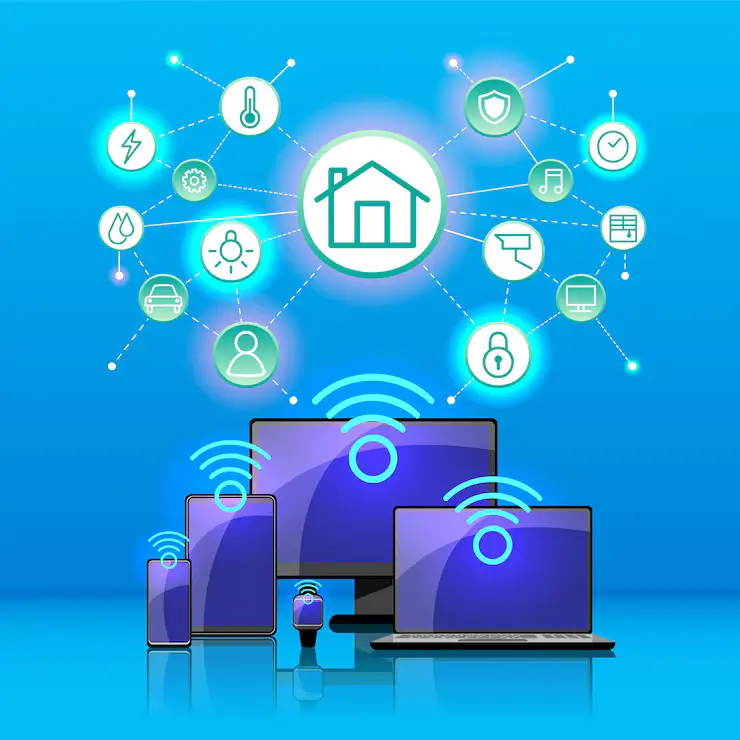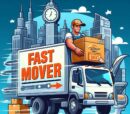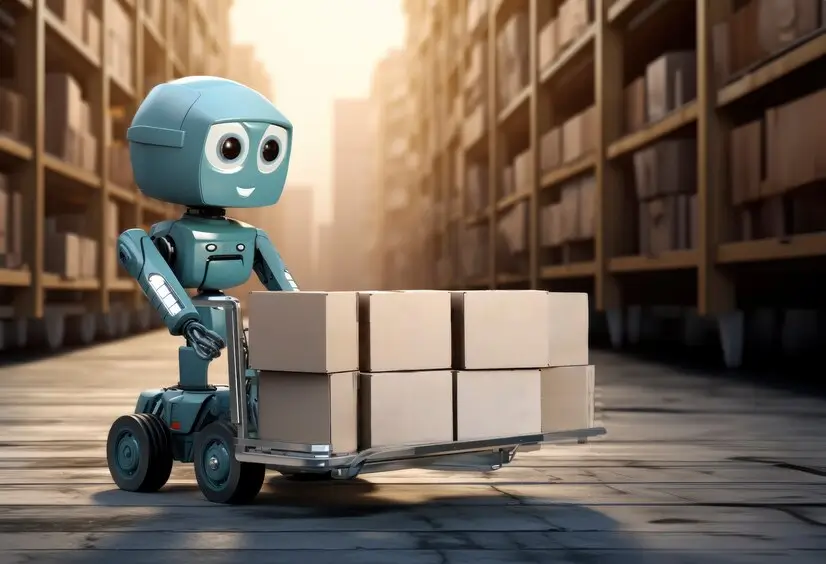The Future of Moving and Relocations
The Future of Moving: How Technology is Revolutionizing the Relocation Industry
The moving industry is experiencing a technological revolution that promises to transform how we relocate our homes and businesses. As we delve into “the future of moving,” we’ll explore how innovations like virtual surveys, AI, real-time tracking, and more are making moves more efficient and less stressful. Let’s take a closer look at how these advancements are reshaping the relocation landscape.

Embracing Digital Transformation: The Future of Moving
1. Virtual Moving Surveys: The Future of Estimation
In “The Future of Moving,” the traditional in-home survey is being replaced by virtual moving surveys. These innovative tools allow you to get accurate moving estimates without anyone having to visit your home.
How Virtual Moving Surveys Work:
With just a smartphone or tablet, you can connect with a moving company representative via a video call. As you walk through your home, showing them your items, they provide an on-the-spot estimate. This method is fast, convenient, and flexible.
Benefits of Virtual Moving Surveys:
- Convenience: There is no need to wait for an in-person visit; schedule your survey anytime.
- Accuracy: Real-time visuals lead to precise and detailed moving quotes.
- Safety: Especially valuable during health concerns, minimizing physical contact.
Virtual surveys are a major step forward, simplifying the initial phase of your move and setting the tone for a streamlined experience.
2. AI and Machine Learning: Redefining Customer Service in the Future of Moving
Artificial Intelligence (AI) and machine learning are at the heart of “the future of moving.” These technologies are enhancing customer interactions, optimizing logistics, and personalizing services to meet your specific needs.
AI in Customer Service:
AI-powered chatbots are available 24/7 to answer your questions, provide quotes, and update you on your move’s status. This instant, round-the-clock service improves responsiveness and customer satisfaction.
Machine Learning in Logistics:
Machine learning analyzes data to predict and mitigate potential issues like traffic or weather disruptions. It helps in planning the most efficient routes and ensuring timely deliveries and smooth relocations.
Personalized Moving Services:
AI learns from past interactions to offer tailored recommendations, whether it’s choosing the best moving date or suggesting packing tips based on your previous moves.
These advancements make moving more predictable and less stressful, aligning services closely with your needs.

3. GPS and IoT: Enhancing Transparency in the Future of Moving
Real-time tracking through GPS and the Internet of Things (IoT) is a cornerstone of “the future of moving.” This technology gives you unprecedented visibility into your movements.
Real-Time Tracking:
With GPS, you can monitor the location of your moving truck at all times. This transparency allows you to know exactly where your belongings are and when they will arrive.
IoT-Enabled Sensors:
Sensors attached to your shipment provide updates on the condition of your items. They can report on temperature and humidity and even detect if there are excessive vibrations that might indicate rough handling.
Benefits of GPS and IoT:
- Transparency: Keep track of your belongings from start to finish.
- Security: Enhanced monitoring ensures safe and secure transportation.
- Efficiency: Optimized routes and reduced transit times improve reliability.
These technologies offer peace of mind and confidence, knowing that your move is closely monitored and efficiently managed.

4. Digital Platforms and Apps: Centralizing the Future of Moving
Digital platforms and apps are making “the future of moving” more accessible and manageable. These tools serve as a one-stop shop for all your moving needs.
Features of Moving Apps:
- Booking and Payments: Book services and make payments seamlessly through the app.
- Inventory Management: Create digital inventories to keep track of your belongings.
- Real-Time Updates: Get notifications and updates on your move’s progress.
Simplifying Your Move:
These apps also provide checklists, moving tips, and direct communication with your moving team, ensuring you stay organized and informed throughout the process.
With everything you need at your fingertips, digital platforms are simplifying and enhancing the moving experience.
5. Smart Home Integration: Preparing for the Future of Moving
As smart homes become more common, moving companies are adapting to these new realities. In “The Future of Moving,” setting up your smart home is part of the relocation service.
Setting Up Smart Devices:
Movers can now assist with installing and configuring smart devices, ensuring that your new home is connected and operational from day one.
Benefits of Smart Home Integration:
- Seamless Transition: Get your smart devices up and running quickly.
- Connectivity: Ensure your internet and network systems are properly set up.
- Security: Have your home security systems installed and tested immediately.
By offering these services, movers are helping you settle into your new smart home effortlessly.
How Technology is Shaping the Future of Moving
Looking ahead, “the future of moving” is filled with innovative possibilities that promise to further enhance the moving experience.
1. Autonomous Vehicles and Drones: The Cutting Edge of the Future of Moving
Autonomous vehicles and drones represent the cutting-edge in “the future of moving.” These technologies could redefine how we handle logistics and delivery.
Self-Driving Trucks:
Self-driving trucks are expected to improve long-distance moves, offering more efficient and reliable transportation without the limitations of human drivers.
Drones for moving:
Drones could provide quick deliveries of small items or conduct aerial surveys of your property, offering new solutions for urban and complex moving environments.
Impact of Autonomous Vehicles and Drones:
- Efficiency: faster and more reliable delivery with reduced need for human intervention.
- Cost Savings: Lower operational costs could translate into more affordable moving services.
- Innovation: New capabilities like rapid small-item deliveries and detailed property assessments.
These technologies are set to take moving services to new levels of efficiency and innovation.
2. Augmented Reality (AR) and Virtual Reality (VR): The Immersive Future of Moving
AR and VR are making “the future of moving” more interactive and immersive, providing powerful tools to plan and execute your move.
Virtual Home Tours:
VR allows you to explore your new home virtually before you move in, helping you plan the placement of your furniture and belongings.
AR for Space Planning:
With AR, you can visualize how your items will fit into your new space by overlaying digital images onto the real world through your smartphone or tablet.
Interactive Moving Guides:
AR can also offer interactive, step-by-step instructions for packing and moving, making these tasks more engaging and less daunting.
Uses of AR and VR in Moving:
- Planning: Visualize your new home and layout before moving day.
- Efficiency: Use interactive guides to streamline your packing and moving.
- Engagement: Make the moving process more fun and less stressful.
These technologies are becoming an engaging and less uncertain experience.
3. Blockchain: Securing Transactions and Logistics in the Future of Moving
Blockchain technology is set to secure and simplify transactions and logistics in “the future of moving.”
How Blockchain Works in Moving:
Blockchain offers a secure, immutable ledger for tracking every transaction and movement of goods. This ensures transparency and reduces the risk of fraud, providing a higher level of trust in the moving process.
Benefits of Blockchain:
- Transparency: Every step of your move is recorded and verifiable.
- Security: Enhanced protection against fraud and unauthorized changes.
- Efficiency: Streamlined processes for contracts, payments, and tracking.
By adopting blockchain, moving companies can offer a more secure and transparent service, ensuring your peace of mind.
Conclusion: Embracing the Future of Moving
Technology is reshaping “the future of moving,” bringing efficiency, transparency, and customer-centric innovations to the forefront. From virtual surveys and AI-driven services to real-time tracking and smart home integration, these advancements are making relocations smoother and less stressful.
As we look to the future, the possibilities with autonomous vehicles, drones, AR, VR, and blockchain are even more thrilling. These technologies promise to further revolutionize how we move, making the process more efficient, secure, and engaging.
Planning a move? Consider how these technological innovations can enhance your experience. “The future of moving” is here, and it’s incredibly promising.
FAQs about the Future of Moving and How Technology is Revolutionizing the Relocation Industry
How is technology improving the moving process?
Technology improves moving through virtual surveys, AI for logistics, real-time tracking, digital platforms, and smart home integration.
What are virtual moving surveys, and how do they work?
Virtual surveys use video calls for estimates, providing accuracy and convenience without in-person visits.
How does AI benefit the moving industry?
AI enhances customer service, optimizes logistics, and personalizes services based on data and preferences.
Can I track my moving truck in real time?
Yes, many companies offer real-time tracking via GPS, ensuring transparency and peace of mind.
How do digital platforms and apps make moving easier?
They centralize bookings, payments, and inventory management, and offer real-time updates for convenience.
What future technologies will impact the moving industry?
Future technologies include autonomous vehicles, drones, AR/VR, and blockchain for secure and efficient moving processes.
How can AR and VR be used in the moving process?
AR/VR offers virtual home tours, visualizes item placements, and provides interactive packing guides for a smoother moving experience.
How does blockchain technology secure moving transactions and logistics?
Blockchain ensures transparency, security, and efficiency by creating an immutable ledger for all moving activi

